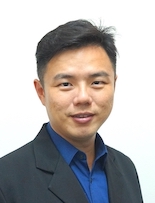Tina Tan
One group of folks who was hit early on during the COVID-19 pandemic were our migrant workers. We won't forget anytime soon that Singapore's first huge wave of cases was fuelled by an outbreak in the migrant workers' dormitories and that since then, their movements have been severely restricted, with respite coming only in recent weeks. The silver lining of this is that the living and working conditions of our migrant workers have come under the spotlight, prompting the Government to make changes which I hope will be lasting and humane.
On that note, this issue is focused on migrant workers, specifically, the work that one organisation has done through these years. While this isn't meant to be an advertisement for HealthServe, it is an acknowledgement of the many people who have volunteered their time to help look after our migrant workers.
In addition, I am pleased to announce that Dr Clive Tan has joined our Editorial Board, and we look forward to his contributions in the near future.
Alex Wong
Jeremy Monteiro's One People, One Nation, One Singapore is a perennial favourite during each National Day:
"We've built a nation with our hands. The toil of people from a dozen lands. Strangers when we first began, now we're Singaporean."
Yet it is clear that while our nation remains the toil of people from a dozen lands, it is no longer our hands building this nation, nor will those hands ever, in most cases, become Singaporean. COVID-19 has laid bare our divisions and it has become painfully clear that if anything, we are two people, two nations and two Singapores. We have two standards of living, two sets of rules for COVID-19 and two different healthcare systems.
At a population of almost 5.7 million, we have approximately 1.2 million migrant workers. The proportion of migrant workers has decreased over the last decade, but the amount of migrant labour remains staggering. Migrant labourers run our homes, construct our buildings, care for our elderly in nursing homes and serve as foot soldiers in our companies. The vast majority of them have never entered the healthcare system, or were simply sent home when they needed healthcare the most, but COVID-19 has violently upended that status quo. The Ministry of Manpower and the handful of voluntary welfare organisations in the migrant worker sector fought the good fight but found themselves swamped at exactly a time when healthcare manpower was drastically short. Many found themselves caring for workers in makeshift tents under flyovers and in old industrial buildings, desperately looking for care beds with large numbers of workers simply confined to their dormitories, at risk of infecting the uninfected. Finally, the outbreak was contained, but at huge financial and human cost.
One could argue that this is simply the nature of the pandemic and that others fared worse, but the point is that we came close to the precipice of an unstoppable outbreak at a time when we had no vaccines and antivirals. As we approach the "new normal", do we sweep this problem back under the carpet or establish some sort of proper healthcare provision such that the next pandemic would not find us staring so precariously into the abyss?
Who will bear the cost? The question is thorny and there are no simple answers, but as we search our souls, it is perhaps worth considering the words of the Reverend Martin Luther King, Jr as he spoke in Chicago, Illinois, on 25 March 1966: "Of all the forms of inequality, injustice in healthcare is the most shocking and inhumane."
Welcome On Board

Adj Assistant Prof Clive Tan is a public health specialist currently holding the position of Head of the Force Health Group in the Singapore Armed Forces, where he oversees the areas of healthcare policy, biodefence and medical informatics. His other portfolios include teaching at the Saw Swee Hock School of Public Health and the National University Health System's National Preventive Medicine Residency Programme; health systems practice at the National Healthcare Group in the area of integrated care; and research at the Duke-NUS Medical School's Centre of Regulatory Excellence. He is also the vice president of the College of Public Health and Occupational Physicians, Academy of Medicine, Singapore.
He has published widely on a range of topics related to public health, such as infectious disease, public health preparedness, healthcare leadership, health systems, digital health and tobacco control.
In his free time, he enjoys reading and playing computer games with his three children. Like most of us, he misses travel and hopes that we will all be able to take an overseas holiday soon.